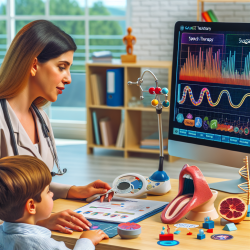Unleashing the Power of Telemedicine in ENT: A Data-Driven Approach
The rapid evolution of telemedicine has transformed healthcare delivery, particularly in the field of otorhinolaryngology. The scoping review titled Telemedicine and Telementoring in Rhinology, Otology, and Laryngology: A Scoping Review provides a comprehensive analysis of telemedicine's applications in ENT, revealing its potential to enhance patient care, especially in underserved areas.
Key Findings from the Scoping Review
According to the review, telemedicine has gained significant traction, especially during the COVID-19 pandemic. The study identified two main applications: virtual encounters and telementoring, which are further categorized into seven subdomains. These applications have shown to be feasible, cost-effective, and satisfactory for both patients and providers.
- Virtual Encounters: These include consultations via telephone or video platforms, tele-screening, tele-rehabilitation, and postoperative follow-ups. The review found that virtual encounters can expand healthcare coverage, reduce unnecessary visits, and save travel costs, while maintaining diagnostic accuracy comparable to in-person visits.
- Telementoring: This involves mentoring through telecommunication networks, which has proven to be a valuable tool for training and surgical guidance, particularly in rhinology. The review highlights the potential for telementoring to enhance surgical education and reduce travel expenses.
Implications for Practitioners
For practitioners in the field of ENT, integrating telemedicine into practice can offer numerous benefits:
- Improved access to care for patients in rural or underserved areas.
- Increased efficiency in patient management and follow-up.
- Enhanced training opportunities through telementoring.
- Cost savings for both healthcare providers and patients.
However, practitioners must also consider challenges such as ensuring data security, maintaining patient privacy, and navigating licensing requirements across different regions.
Encouraging Further Research
While the review provides a solid foundation, it also underscores the need for further research to address the limitations of telemedicine. Practitioners are encouraged to explore innovative telemedicine solutions and contribute to the growing body of evidence supporting its efficacy.
By staying informed and actively participating in telemedicine research, practitioners can play a pivotal role in shaping the future of healthcare delivery in ENT.
To read the original research paper, please follow this link: Telemedicine and Telementoring in Rhinology, Otology, and Laryngology: A Scoping Review










